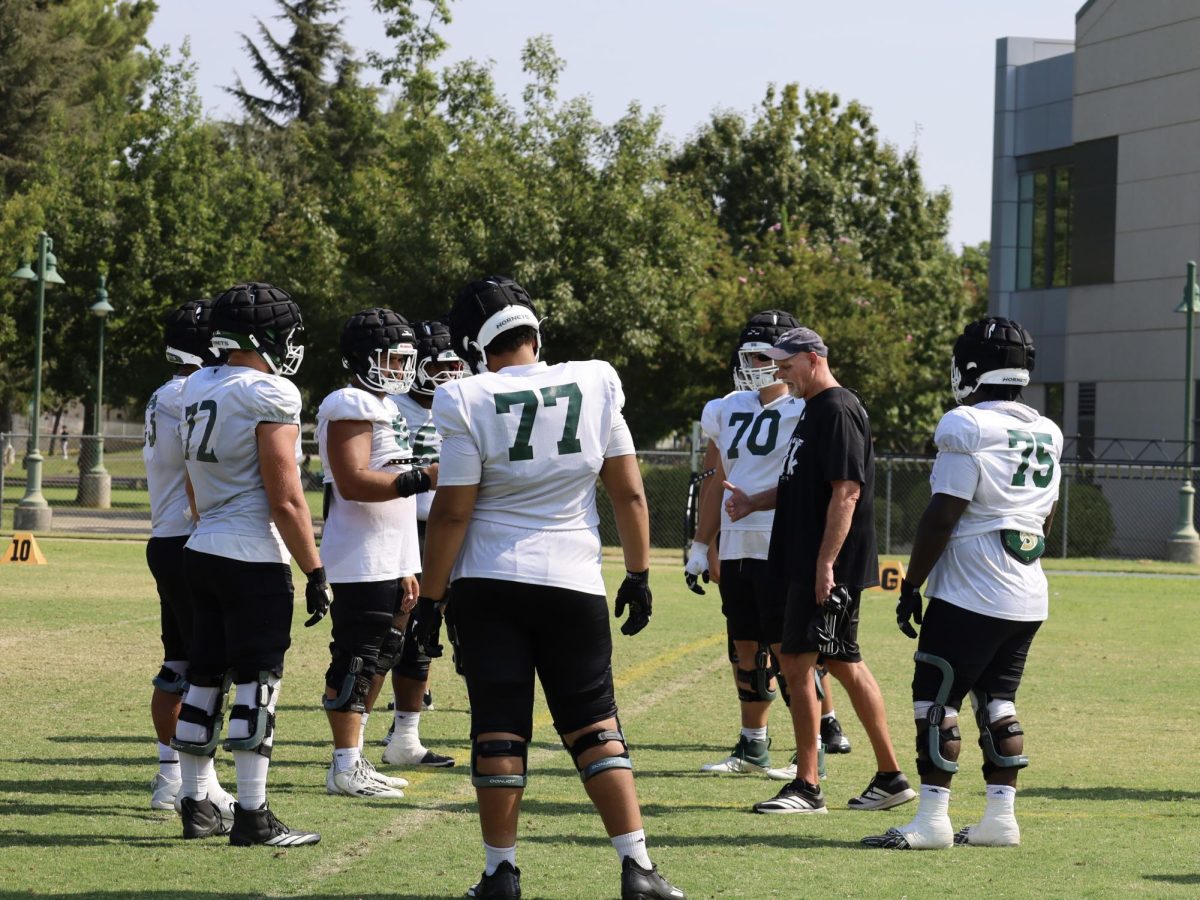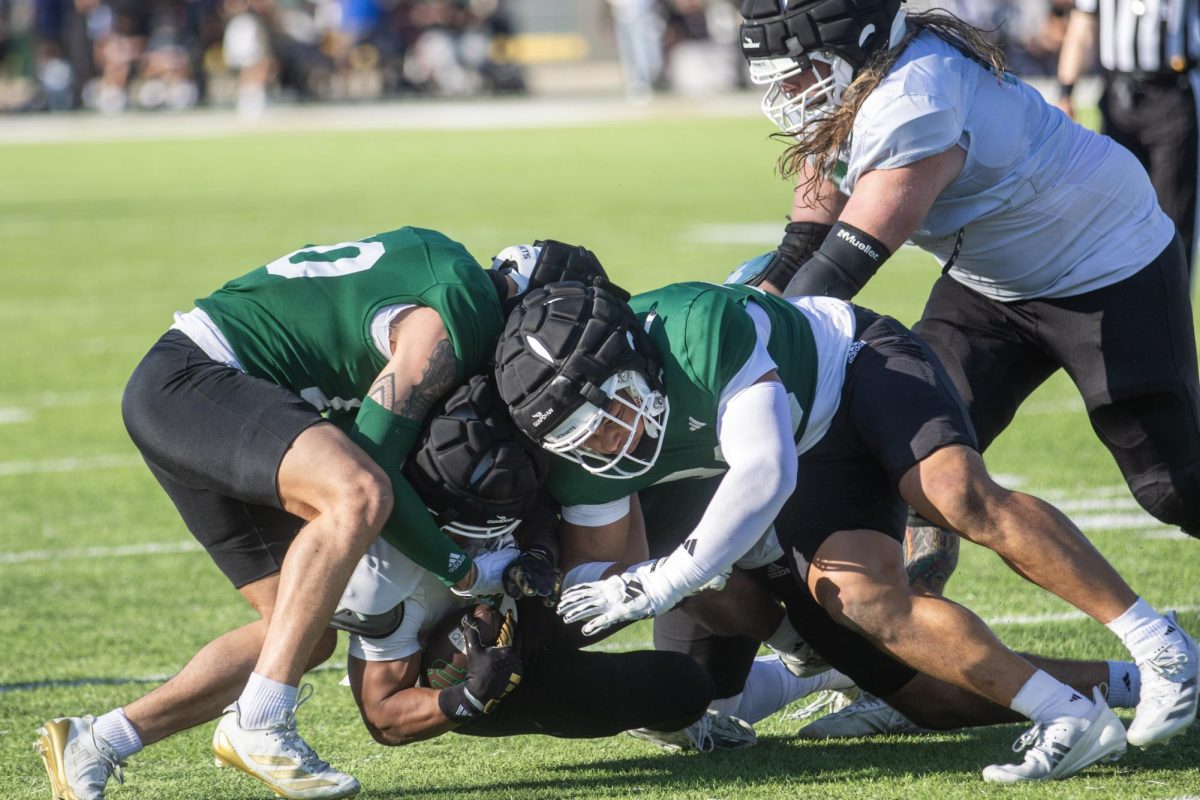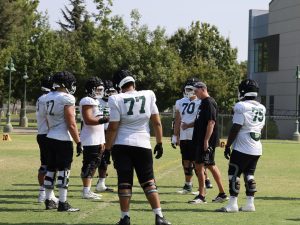Test2 State Hornet Staff assist with Move-in
August 28, 2014
The TV show Desperate Housewives has become such a hot ticket item that it appears that First Lady Laura Bush will make several cameo appearances in the upcoming season. Given that the first lady is quite conservative politically (or at least her husband is), this has caused a great many conservatives (read religious right) to have a field day with the show—letting the show’s producers know what is conservatively correct and incorrect about the show. So while extramarital affairs, birth control, cleavage revelations and skin-tight clothing are being discussed, I find it interesting that no one is attacking the idea that the image of motherhood is being portrayed in a slightly new and perhaps feminist way. Maybe they haven’t seen the subtle signs (maybe they don’t know what feminist ideals are!)—but they’re there.
In 1953, New York Times’ radio and television columnist Jack Gould stated that Lucy Ricardo (the character played by Lucille Ball on I Love Lucy) had made motherhood appear as “one of the most natural and normal things in the world.” Since then all forms of media (but especially televised media) have portrayed motherhood as “natural and normal.” So “natural and normal” that for women to be depicted as anything other than a mother (and what we’re really talking about here is being depicted ONLY as a “stay-at-home-mom”) means they will automatically be portrayed as unnatural and NOT normal. It’s an all or nothing syndrome.
From Lucy Ricardo to June Cleaver to Mrs. Brady to Mrs. Cunningham, the notion that motherhood was inevitable and ALWAYS something you did at home was reinforced time and again with one-dimensional characters who happily went along with society’s expectations that being a mom is what you “wanted to do”. No question. And when you were a mom, you stayed at home. As the number of women who entered the work force doubled in the 1980s even the most popular shows on TV, The Simpsons and Married with Children, offered only stay at home moms.
It wasn’t until Murphy Brown, played by Candice Bergen in the 1990s, that we were confronted with a character who wanted to be a working mother, and who didn’t need to be a working mom. To top things off, she was unmarried. The fictitious Murphy Brown became the poster mom of what is wrong with the US morally when then vice-president Dan Qualye accused Murphy Brown of glorifying single motherhood and working moms.
But with Desperate Housewives, there appears to be a process I call “stripping away” at motherhood. I think Desperate Housewives (in very small ways) appears to be “stripping away” at the previous one-dimensional TV moms we have been seeing for 50 years. Yes, Desperate Housewives is a soap opera of sorts with cleavage, sexual tensions and multiple plot lines—but what it also offers is a glimpse into the complex and difficult world of motherhood.
I think the character Lynette really demonstrates that the most in the first season—although all of the characters have subtle feminist characteristics or lines given to them. (My favorite is Gabrielle’s “We are not negotiating my uterus”—but that subject we can leave for another column.)
Lynette is first introduced to the TV audience as a very successful corporate player. Then she is getting an ultrasound of her first baby, and her husband tells her that she should stay at home with the baby—he had read somewhere that this is best. She now has 4 children under 6 years old—which includes a set of twins—and has been a stay-at-home mom ever since. But not a happy one. So we see her constantly struggling with her choice to stay at home, constantly missing the work environment where she was so successful and constantly evaluating her behavior as bad. She finds she is not naturally drawn to motherhood and that it is not easy. It is these little glimpses of the fictional Lynette’s struggles with motherhood that finally reflect what a lot of real moms feel. Women who are also moms can see little truths in Lynette’s struggle to accomplish motherhood and that’s something we haven’t seen too often in past media representation of moms.
It really leaped out at me when Lynette said in one episode that she “couldn’t do it.” When one of her friends suggested she get someone to help with the kids, Lynette said she felt like a failure because “other moms don’t need help.” Then her two friends proceeded to tell her that they needed help when their kids were little and that they had found motherhood difficult too. Then Lynette said, “We should talk about this more—this really helped.”
It is possible that Lynette’s character perhaps has begun to reframe what we as society find to be “natural and normal” behavior.
The truth is motherhood is a difficult 24/7 job and even though Desperate Housewives, and specifically the character of Lynette, offers only snippets of the truth (I call them golden nuggets), the fact that these truths are even there at all is a huge leap from previous moms depicted on TV and the movies.
My hunch is that Laura Bush has no idea what she was saying when she said she was “a desperate housewife” in front of the White House Press Corps at a dinner in May. But let’s hope the snippets of truth about motherhood continue and multiply and that Laura Bush’s husband’s friends continue to ignore the fact that each of the female characters in the show offers feminist ideas.
Timi Ross Poeppelman is an adjunct communication studies and journalism professor at CSU Sacramento. She will be a regular columnist for mamazine.com writing about the images of moms in the media.
column added on 2005-09-03 :: ::





























































































































